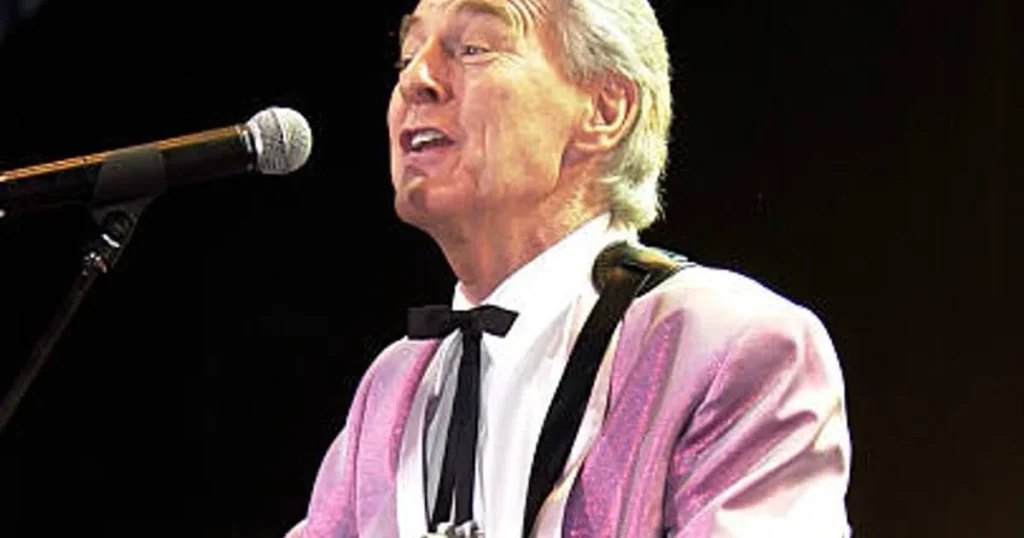
Col Joye performs live during the 'Long Way to the Top' tour at Sydney Entertainment Centre on September 13, 2002. Peter Carrette Archive/Getty Images
Col Joye’s Rise in Australian Rock History
Joye began his career in 1957, performing with his brother Kevin in a jazz group known as the KJ Quintet. They quickly transitioned into the rock and roll scene, renaming the group Col Joye and the Joy Boys.
The band’s breakthrough came when “Bye Bye Baby” topped the Sydney charts and gained nationwide success.
Over the next few years, Joye and his band released several hits, including “Rockin’ Rollin’ Clementine” and “Oh Yeah Uh Huh,” becoming household names across the country.
Their popularity was further amplified by regular appearances on the popular television program Bandstand, where Joye remained a regular performer for more than a decade.
Shaping the Industry Beyond Performance
Col Joye’s influence extended far beyond the stage. Alongside his brother Kevin, he established a highly successful music enterprise that included artist management, publishing, and recording.
It was through this network that he discovered the Bee Gees, after seeing the group perform in Queensland in 1961. The trio was signed to his publishing label, Joye Music, marking an early turning point in their career.
Joye’s business ventures helped to professionalize the Australian music scene at a time when local artists were often overshadowed by international acts. His work in nurturing talent and building infrastructure remains a key part of his legacy.
A National Star and Cultural Mainstay
In 1973, Joye returned to the charts with “Heaven Is My Woman’s Love,” which became a national number one hit.
He was also one of the few artists from the 1950s and 60s to successfully transition into the country music genre, maintaining a connection with new audiences while continuing to tour.
Joye was recognized for his contributions with multiple honors, including being appointed a Member of the Order of Australia in 1981.
In 1988, Col Joye was inducted into the ARIA Hall of Fame, and in 2010, his song “Bye Bye Baby” was selected for inclusion in the National Film and Sound Archive’s Sounds of Australia register.
Tributes from the Music Community
Australian singer Normie Rowe described Joye as a “guiding light” in the industry, recalling his influence during the 2002 Long Way to the Top tour. According to Rowe, Joye was admired not only for his musical talent but also for his character and mentorship. “He was the true gentleman of the industry,” Rowe said in tribute.
Rowe also shared that Joye personally gifted him a Maton guitar, symbolizing a passing of the torch. Plans are underway to donate the instrument to a national museum in recognition of Joye’s enduring impact.
Legacy of an Australian Music Pioneer
From chart-topping singles to foundational contributions behind the scenes, Col Joye leaves behind a rich musical and cultural legacy. His early success gave confidence to a generation of Australian performers, while his business acumen helped establish pathways for future artists to thrive.
Col Joye’s death marks the close of a significant chapter in Australian music history. His role as a performer, mentor, and industry leader ensures he will be remembered not only for his songs but for the profound influence he had on the nation’s cultural landscape.

